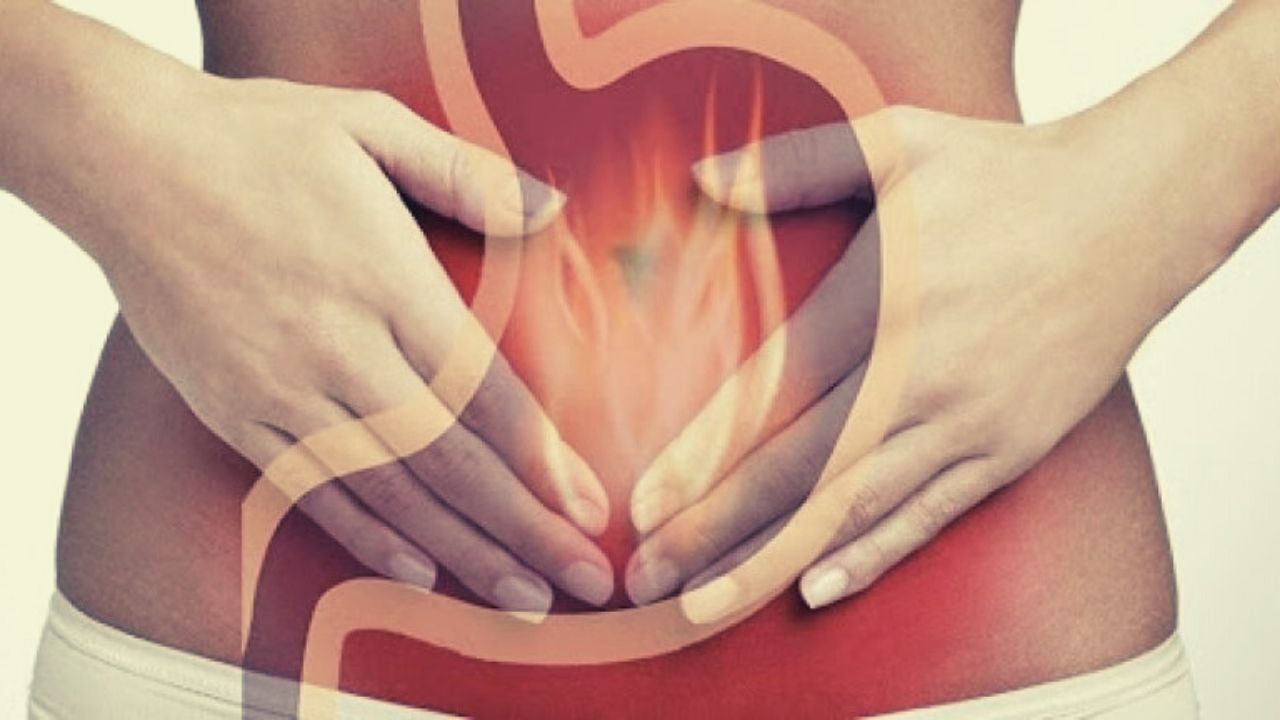Inflammation of the stomach lining – gastritis , the symptoms of which are severe abdominal pain, indigestion (dyspepsia), bloating and nausea – are familiar to many.
The disease can appear suddenly (acute gastritis) or develop gradually (chronic gastritis). Medication and dietary changes can help reduce stomach acidity and relieve symptoms, but not the underlying causes.
Sudden gastritis affects about 8 in 1,000 people. Long-term gastritis is less common in about 2 in 10,000 people.
The good news is that the disease is almost 100% cureable. Having diagnosed gastritis or concomitant similar diseases (esophagitis, ulcer), the gastroenterologist will prescribe a well-chosen treatment and advise on the diet.
Symptoms of gastritis
In many people, gastritis is asymptomatic; other patients often mistake them for situational indigestion.
Signs of gastritis include:
- black tarry stools
- bloating
- nausea and vomiting
- feeling full during or after eating
- loss of appetite
- stomach ulcer
- unexplained weight loss
- pain or discomfort in the upper abdomen
- vomiting of blood.
Symptoms of stomach ulcers and gastritis can be confused because how they are often caused by the same bacterial pathogen – Helicobacter pylori (H. pylori), which infects about two-thirds of the world’s population.
Causes of gastritis
Besides the bacteria mentioned above, gastritis occurs when something damages or weakens the lining of the stomach. The problem can be caused by various factors, including:
- alcohol abuse irritates and destroys the stomach lining
- an autoimmune disease due to which the body’s immune system attacks healthy cells of the stomach lining
- bile reflux: The liver produces bile, which helps digest fatty foods. Reflux gastritis occurs when bile returns back into the stomach rather than passing through the small intestine
- Medications: Continuous use of non-steroidal anti-inflammatory drugs (NSAIDs) or corticosteroids to treat chronic pain can irritate the stomach lining.
- physical stress (severe burns and brain trauma, for example) often provokes gastritis.
The risk of developing gastritis increases with age. In older people, the gastric mucosa is thinner, blood circulation is reduced, and the processes of mucous membrane repair are slowed down. Older people are more likely to take NSAIDs and aspirin.
Diagnosis of gastritis
A gastroenterologist will ask about symptoms, medical history, and perform a physical exam. Depending on the conclusions, he will offer to pass several tests for a bacterial infection or instrumental diagnostics:
- breath test for H. pylori in the body: you swallow a capsule or liquid containing urea, a harmless radioactive material. Then exhale into a balloon-like bag. If you have bacteria, the test will show an increased carbon dioxide content
- blood test: a blood test checks the titers of antibodies that fight the H. pylori bacteria
- stool test: checks for the presence of H. pylori bacteria in feces
- gastroscopy: using an endoscope (a thin tube with a probe camera), the doctor will examine the esophagus and gastric mucosa. Take a tissue sample if necessary. The doctor will tell you how to prepare for a gastroscopy during the appointment.
- examination of the upper gastrointestinal tract with a contrast agent – barium. The fluid coats the stomach lining, providing more detailed X-rays.
Treatment for gastritis
According to the result of the examination, depending on the cause, treatment is prescribed.
Some medications kill bacteria, while others relieve symptoms of an upset stomach. Your doctor may recommend:
- antibiotics: you may need to take more than one type of antibiotic, pill or injection, over several weeks
- antacids: calcium carbonate preparations reduce the effects of acid on the stomach, help relieve inflammation
- histamine blockers: ranitidine and analogues
- Proton pump inhibitors: These medications, such as omeprazole and esomeprazole, reduce acid and also treat stomach ulcers and gastroesophageal reflux disease (GERD).
The most popular folk remedy for gastritis and heartburn is soda. Do not self-medicate, removing a symptom is not eliminating the cause.
In addition to medications, a strict diet must be followed during treatment.
Conclusions
The question “how to quickly cure gastritis” is wrong in its essence. It should sound like this: how to cure efficiently and for a long time, and what kind of prevention will help maintain the gastrointestinal tract in a healthy state?
The first step towards improving the quality of life is a comprehensive diagnosis, then a well-chosen treatment. And before and after the illness, the best prevention of gastritis is a gentle diet (in no case fasting).
Follow simple recommendations:
- avoid fatty, fried, spicy and pickled foods
- reduce your caffeine intake, eliminate alcohol
- eat small meals throughout the day
- don’t build up stress
- if possible, do not take NSAIDs
- do not go to bed within 2-3 hours after eating.
Now you know what gastritis is, how to diagnose and treat it. In most cases, gastritis resolves quickly after treatment.
